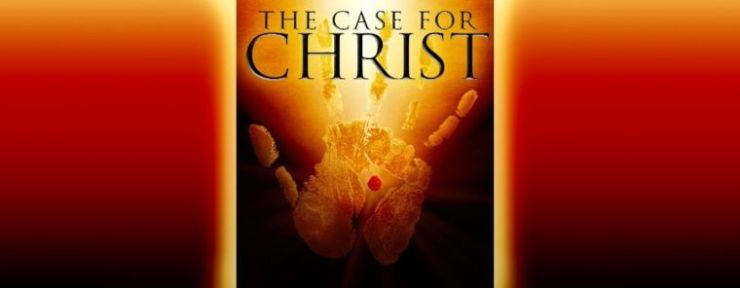
Some years after becoming a Christian, Lee Strobel wrote a book, The Case for Christ, based on his long search for the truth about Jesus. The book has become something of an evangelistic classic, sold millions and been widely translated. It has now given rise to a film, released in the US in April and in the UK this month.
It's an interesting film with a double focus. One part of the film deals with the spiritual voyage of Lee Strobel and his wife Leslie towards belief in Christ. She comes to faith first and this is something that Lee struggles with and which pushes him into a long exploration of the evidence for Jesus, and specifically his resurrection. Interwoven with this account of the couple's far from easy spiritual journey is a portrayal of Strobel's interviews with various experts about the resurrection of Christ. (These are to some extent 'creatively re-imagined' for the film: what were presumably letters and phone conversations are turned into much more cinematic interviews.)
The first thing to say is that this is an enjoyable, well-acted and well-filmed production. The days when you had to make embarrassed apologies for the quality of Christian films seem, thankfully, to be behind us. The Case for Christ will win no Oscars but it's a good piece of work, particularly when it covers the Strobels' evolving relationship. Probably inevitably, the interviews that, in his quest for the truth, Lee has with various individuals do intrude somewhat awkwardly into this family drama. One fascinating aspect of the film for those of us old enough to remember the 1980s is the way that it faithfully captures that almost forgotten era with its typewriters, pagers, payphones and sideburns. Ah, nostalgia!
Yet the film is more than a story: as the title suggests this is a film that seeks to make a case. Perhaps the best and most important thing here is the big message that Christianity has a solid historical basis and can stand up to intellectual questioning.
Does the film make an effective 'case for Christ'? In part, I think so but, for good or ill, the world has changed since Leslie and Lee became believers. So, for example, the idea of criss-crossing a continent interviewing experts in the flesh seems more improbable than ever. Today's hunt for truth would involve websites, online forums and endless emails. Equally, there are far more resources now on the resurrection than at the time of Lee Strobel's initial search. So the first port of call for any enquirer on the resurrection today would have to be the various articles and talks by N.T. Wright including, for the serious enquirer (it is 800 pages long!), The Resurrection of the Son of God.
I noted, too, that the emphasis throughout the film of searching for truth seems to be somewhat out of tune with our 'post-truth' world. Evangelism today must grapple with the many for whom the big question is not 'did Jesus rise from the dead?' but 'so what?'
I was also struck with the fact that, possibly due to cuts in the film's editing, the film focused entirely on the event of the resurrection of Jesus and told us little about what it means or even who Jesus was. This is important; one of the most convincing things about the resurrection is the way that there is a logic to it. Yes, this is an utterly unique and astonishing event, but then Jesus was an utterly unique and astonishing man; if any man could bounce back from death it would be this man. Equally, too, the big story of the Bible, which culminates with God in Jesus dying for the sins of the world, is lost. This is a film that points to a key aspect of the good news of Jesus but doesn't tell the whole story. But then how could it?
Nevertheless, these are minor points. Is it worth seeing? Well if it comes to a cinema near you I think so. It's certainly worth getting hold of when it comes out on DVD. This could help many on their journey of faith.
Let me close by suggesting that critics will not be kind to this film. After all, we live in a culture in which a persuasive account of someone moving out of faith will, in all probability, be praised as 'heroic', 'truthful' and 'authentic'. Yet a not dissimilar film showing someone taking the reverse journey into faith will almost certainly be dismissed as 'propaganda'. When it comes to films about faith, the playing field is far from level.




